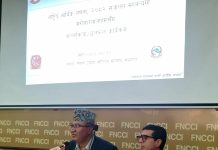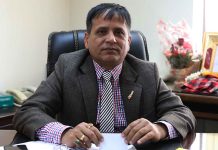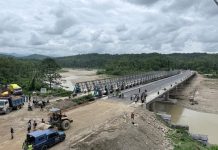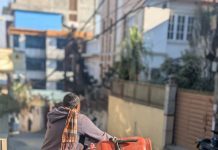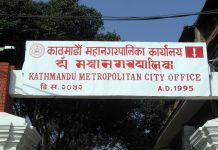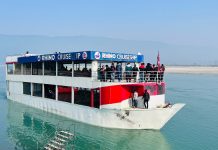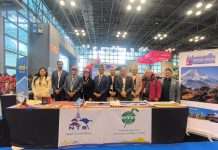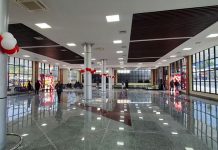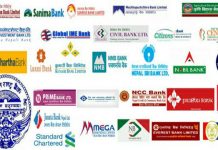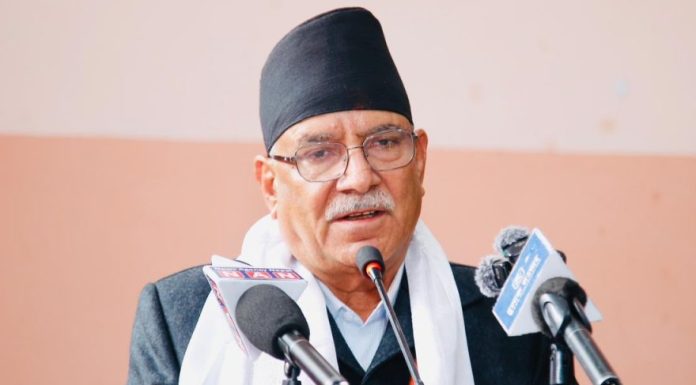Kathmandu, 9 June.
The UN Development Programme has launched livelihoods recovery programme to help the most vulnerable people cope with the COVID-19 pandemic.
In the first phase of the programme, to be implemented jointly with the local governments, over 2,000 women and men – especially the poor, vulnerable and the most-affected daily wage earners and migrant workers – will get short-term employment though small-scale community and tourism infrastructure projects in 11 of the most affected municipalities in Sudurpaschim, Karnali, Gandaki and Bagmati.
‘Besides a daily wage, workers will be offered the opportunity to access skills training and technology support aimed at supporting the establishment of potentially up to 600 micro-enterprises to generate longer term livelihood opportunities in these areas. In Gandaki, workers will be engaged to clean up trekking trails and plant trees,’ said the UNDP on Tuesday.
The same programme will provide short-term employment opportunities through projects focusing on the rehabilitation, construction, or improvement of community infrastructure, such as irrigation canals, drinking water system, and rural roads.
“Up to 23 such schemes are planned, which will be implemented under the leadership of user groups from these same communities. These schemes aim to provide short-term employment to over 1200 hardest hit people,” UNDP said in a statement.
These activities are part of UNDP’s socio-economic recovery response, which will be funded with US$1.5 million of UNDP’s own funds. It said that responding to a call from the government, UNDP was also repurposing projects towards the broader COVID response in consultation with national implementing partners.
Some of the planned activities have begun in earnest. The Sadhikhola Virkuna irrigation project in Kakani Rural Municipality, Ward 6, started last week and is expected to engage up to 400 people, most of them farmers.
The canal will irrigate 21 hectares of agricultural land (435 ropanies) directly benefiting 75 households. Similar projects have started at Palungtar Municipality in Gorkha, Melamchi Municipality and Helambu Rural Municipality in Sindhupalchowk and Jiri Municipality in Dolakha, each engaging over 300 people.
Bernardo Cocco, UNDP’s Deputy Resident Representative said, “As part of our early recovery response, and complementing government efforts, we are re-deploying a significant portion of our resources for targeted interventions supporting recovery of the most vulnerable populations.”



